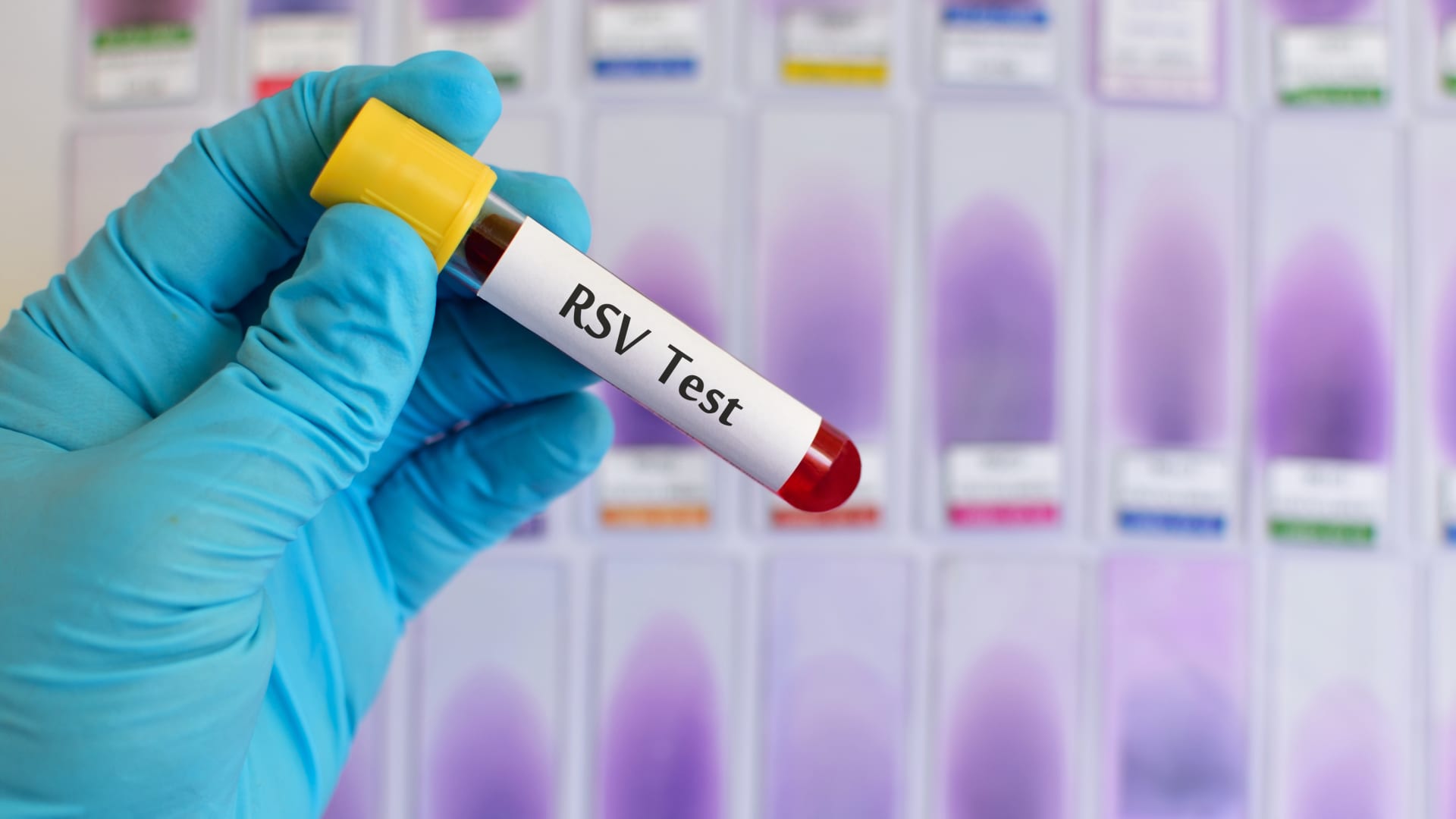Blood sample for respiratory syncytial virus (RSV) test
Jarun011 | Istock | Getty Images
The Food and Drug Administration on Monday approved AstraZeneca and Sanofi‘s shot that protects infants and toddlers against respiratory syncytial virus, which is the leading cause of hospitalization among babies in the U.S.
Nirsevimab is the first shot approved by the FDA to protect all infants against RSV regardless of whether they are healthy or have a medical condition.
related investing news

The FDA approval of nirsevimab comes several months ahead of RSV season this fall. The Centers for Disease Control and Prevention’s panel of independent experts will meet in August to make recommendations on how the injection should be administered by health-care providers.
Another shot called palivizumab is already on the market, but it is given mainly to infants who are preterm or who have lung and congenital heart conditions that put them at high risk of severe disease. Nirsevimab, sold under the brand name Beyfortus, is administered as a single injection. This is a major advantage over palivizumab, which is administered monthly throughout the RSV season.
Nirsevimab is administered either before or during an infant’s first RSV season. Toddlers up to two years old who remain vulnerable can also receive the shot during their second RSV season.
RSV is a major public health threat that kills nearly 100 infants annually, according to a study published in the medical journal JAMA Open Network last year. The virus is the leading cause of hospitalization among children less than a year old, according to another study published in the Journal of Infectious Diseases.
A surge in RSV infections last fall overwhelmed children’s hospitals across the U.S. and led to calls for the Biden administration to declare a public health emergency in response.
Nirsevimab was up to 75% effective at preventing lower respiratory tract infections that required medical attention among infants, and 78% effective at preventing hospitalization, according to a FDA review.
The FDA did not identified any safety concerns in its review of nirsevimab, though other monoclonal antibodies have been associated with allergic reactions such as skin rashes.
Nirsevimab is a monoclonal antibody that has a similar function to a vaccine. Vaccines stimulate the immune system to produce protective antibodies, while shots like nirsevimab deliver those antibodies directly into the bloodstream.
The fact that nirsevimab is regulated as a drug created some uncertainty about whether the federal Vaccines for Children program will provide the shot for free to families who face financial difficulties. The CDC advisors are expected to discuss this issues at their August meeting.

